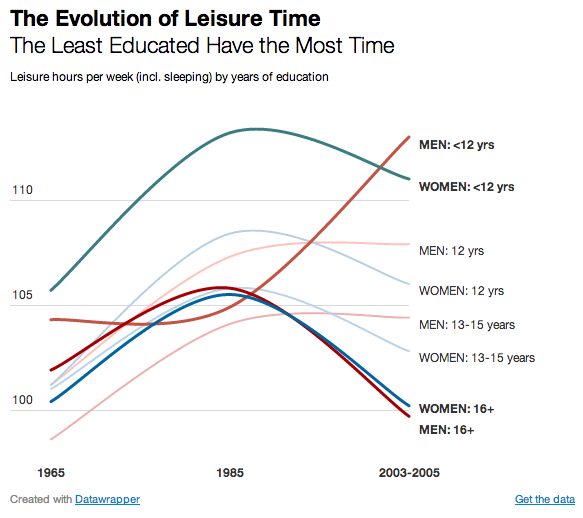How Hillary Clinton can make her nascent economic plan even better
Clinton should take the Center for American Progress' proposals and crank them up to 11


A free daily email with the biggest news stories of the day – and the best features from TheWeek.com
You are now subscribed
Your newsletter sign-up was successful
Hillary Clinton is running for president, and the most important platform of her nascent campaign — on the economy — could use some work.
Most of the chatter in the Beltway suggests the "Report of the Commission on Inclusive Prosperity," released in January by the Center for American Progress and former Clinton White House alums, will form the guts of Clinton's economic agenda. And it's not bad at all, including recommendations to reform corporate governance, strengthen unions, regulate Wall Street, and bulk up worker pay.
But Clinton needs a clear and ambitious story to tell, and it's a few of the report's other recommendations that she should build it around: paid paternity leave, paid sick leave, paid vacation and improved overtime laws.
The Week
Escape your echo chamber. Get the facts behind the news, plus analysis from multiple perspectives.

Sign up for The Week's Free Newsletters
From our morning news briefing to a weekly Good News Newsletter, get the best of The Week delivered directly to your inbox.
From our morning news briefing to a weekly Good News Newsletter, get the best of The Week delivered directly to your inbox.
Here's how it would go: The GOP's "you built that," "job-creator" ethos treats jobs as if they're created by the individual will and ethic of the employer. But that's wrong. Employers may want to hire, but demand is the raw material out of which they can actually fashion a job with good pay and benefits. People have to want and be able to afford what the employer is selling. The economy is an ecology — one in which we all cooperate together, and in which the feedback loop between consumer demand and business supply is the engine of job creation.
But lately, the economy has stopped generating middle-wage jobs; instead we have a lot of high-wage jobs and a lot of low-wage jobs. An increasing number of hard-working families will never be able to make ends meet, because there's simply nowhere they can go to get the pay and economic security they need.
We're creating a stratified "hourglass economy," and the culprit is inequality. Because every job is a product of the economic feedback loop, the quality of a job's pay and benefits is largely a function of the quality of the demand that undergirds that job. Poor people are obviously going to provide poor demand. But while well-off and rich people can provide more robust demand, there are a lot of service jobs they can only afford to pay for — or would prefer to pay for — if they come cheap. Hence the rise of what Vox recently dubbed "the servant economy."
Work, in other words, is itself something people access. As a society, we have influence over how that pool of work is divvied up and shared. And right now America is doing a pretty terrible job distributing access to that work. Take a look at this graph, which charts leisure time for workers with different levels of education since 1965.
A free daily email with the biggest news stories of the day – and the best features from TheWeek.com

Conservatives look at the chart and see a cultural collapse for the lower class: the loss of industriousness and the rise of laziness. But what it really indicates is an economy that has allowed a relatively rarified upper class to gobble up all the good work. And that's a problem, because being attached to the labor force and having work in your life is important, for your own well-being and the country's.
Furthermore, salaried Americans now work an average of 47 hours a week, not 40, and 18 percent work 60 hours. Yet they only take 77 percent of their paid time off, and tend to only use 16 vacation days a year while earning an average of 21. Meanwhile, families are shrinking amongst the over-worked upper class, and the social fabric is coming apart for the lower class, which is having a harder time even finding work. If you're not poor, the economic treadmill is likely exhausting you; and if you are, its gears are just flat-out grinding you up.
So yes, we need to be redistributing incomes downward, to make sure demand is more broadly and evenly shared throughout the economy. But we also need to do a better job divvying and equitably sharing that supply of high quality work. And Clinton should say so.
A portion of American workers already get various forms of paid leave and vacation, but these come at their employer's discretion, and are limited to the middle and upper class. There are federal bills to provide seven days of paid sick leave and 12 weeks of paid family leave for most Americans — though even these are modest offerings compared to what other countries provide. Our neighbors also mandate at least 20 days of paid vacation a year, so U.S. law should catch up here, too.
As for overtime, everyone earning below the qualifying income threshold gets 1.5 times their pay for every hour they work a week over 40. But that threshold has gone without an update for so long that only 11 percent of workers are covered by it. Clinton should update it to once again cover the 65 percent it did in 1975, assuming President Obama doesn't do it first. (The president doesn't need Congress to do it.)
But more deeply, Clinton should consider upping the overtime pay ratio, and eliminating the threshold entirely. Just apply overtime to every worker in the country. The virtue of overtime pay is not simply that it ensures extra compensation for working longer hours — it also encourages employers to hire more people, because it makes it more likely that adding a new worker to the payroll will be cheaper than simply giving current workers more hours. It expands connection to the labor force. Conversely, letting overtime laws shrink increases unemployment, which increases employers' leverage to work the employees they do have harder.
Other ideas, like German-style work-sharing, which aren't included in the report, should be at the top of Clinton's list as well.
All of these policies would improve the lives and livelihoods of everyday working Americans. They would work in conjunction with other ideas in the Inclusive Prosperity report that are also worthy, like strengthening unions, hiking the minimum wage, strengthening the Earned Income Tax Credit and the Child Tax Credit, and more. But most importantly, this framework would give Clinton a coherent and ambitious economic story to tell — one that goes well beyond merely handing out more cash, and treats our economy as the cooperative, shared effort it actually is.
Jeff Spross was the economics and business correspondent at TheWeek.com. He was previously a reporter at ThinkProgress.
-
 Crisis in Cuba: a ‘golden opportunity’ for Washington?
Crisis in Cuba: a ‘golden opportunity’ for Washington?Talking Point The Trump administration is applying the pressure, and with Latin America swinging to the right, Havana is becoming more ‘politically isolated’
-
 5 thoroughly redacted cartoons about Pam Bondi protecting predators
5 thoroughly redacted cartoons about Pam Bondi protecting predatorsCartoons Artists take on the real victim, types of protection, and more
-
 Palestine Action and the trouble with defining terrorism
Palestine Action and the trouble with defining terrorismIn the Spotlight The issues with proscribing the group ‘became apparent as soon as the police began putting it into practice’
-
 The billionaires’ wealth tax: a catastrophe for California?
The billionaires’ wealth tax: a catastrophe for California?Talking Point Peter Thiel and Larry Page preparing to change state residency
-
 Bari Weiss’ ‘60 Minutes’ scandal is about more than one report
Bari Weiss’ ‘60 Minutes’ scandal is about more than one reportIN THE SPOTLIGHT By blocking an approved segment on a controversial prison holding US deportees in El Salvador, the editor-in-chief of CBS News has become the main story
-
 Has Zohran Mamdani shown the Democrats how to win again?
Has Zohran Mamdani shown the Democrats how to win again?Today’s Big Question New York City mayoral election touted as victory for left-wing populists but moderate centrist wins elsewhere present more complex path for Democratic Party
-
 Millions turn out for anti-Trump ‘No Kings’ rallies
Millions turn out for anti-Trump ‘No Kings’ ralliesSpeed Read An estimated 7 million people participated, 2 million more than at the first ‘No Kings’ protest in June
-
 Ghislaine Maxwell: angling for a Trump pardon
Ghislaine Maxwell: angling for a Trump pardonTalking Point Convicted sex trafficker's testimony could shed new light on president's links to Jeffrey Epstein
-
 The last words and final moments of 40 presidents
The last words and final moments of 40 presidentsThe Explainer Some are eloquent quotes worthy of the holders of the highest office in the nation, and others... aren't
-
 The JFK files: the truth at last?
The JFK files: the truth at last?In The Spotlight More than 64,000 previously classified documents relating the 1963 assassination of John F. Kennedy have been released by the Trump administration
-
 'Seriously, not literally': how should the world take Donald Trump?
'Seriously, not literally': how should the world take Donald Trump?Today's big question White House rhetoric and reality look likely to become increasingly blurred
